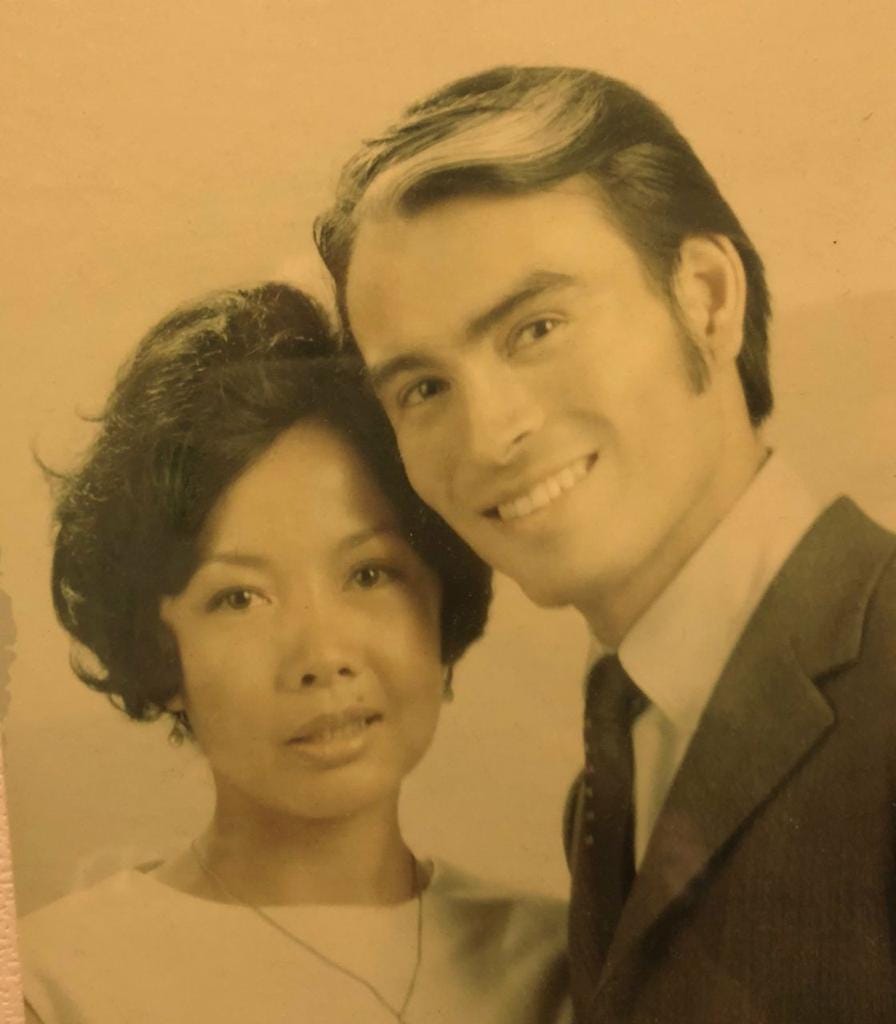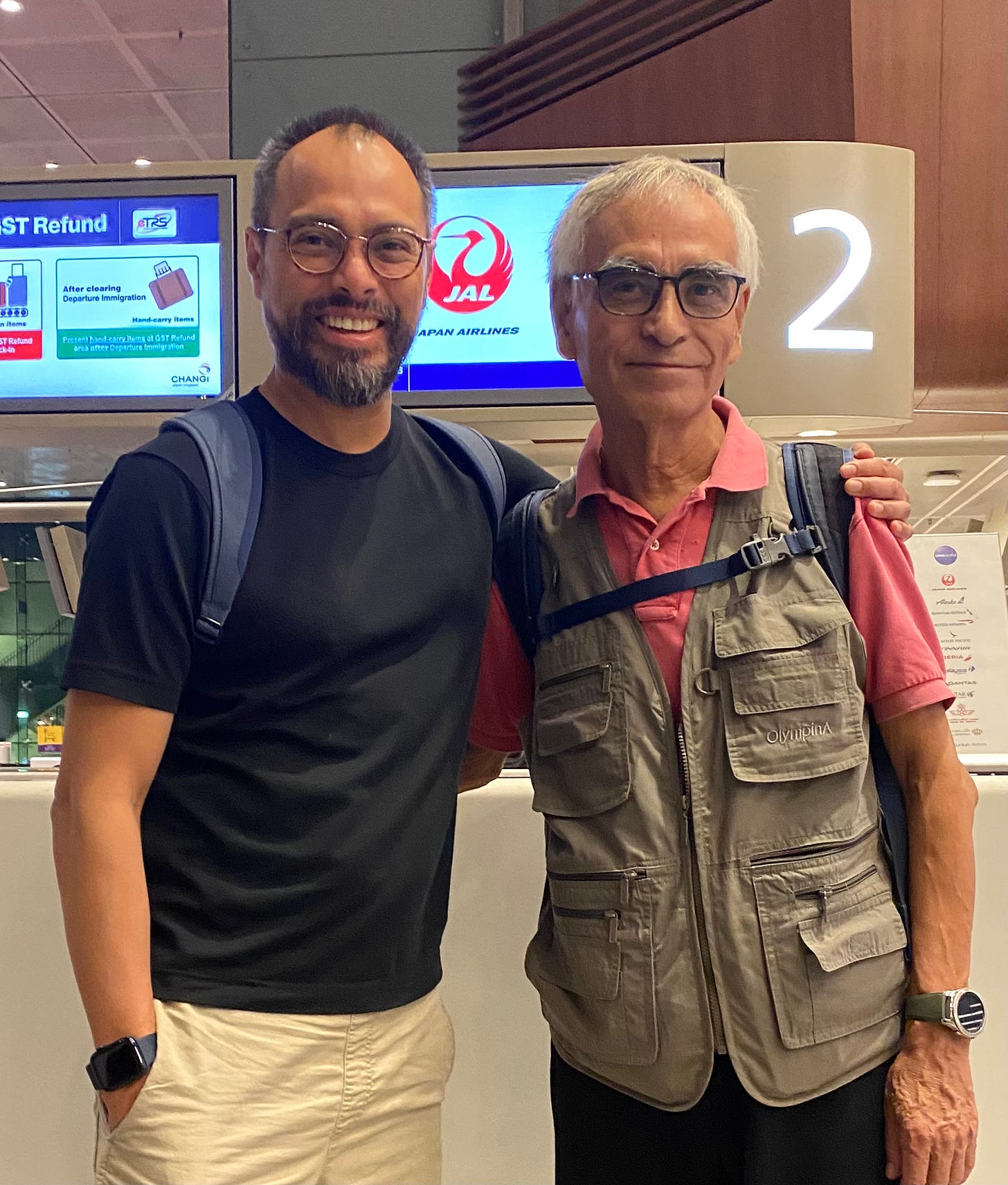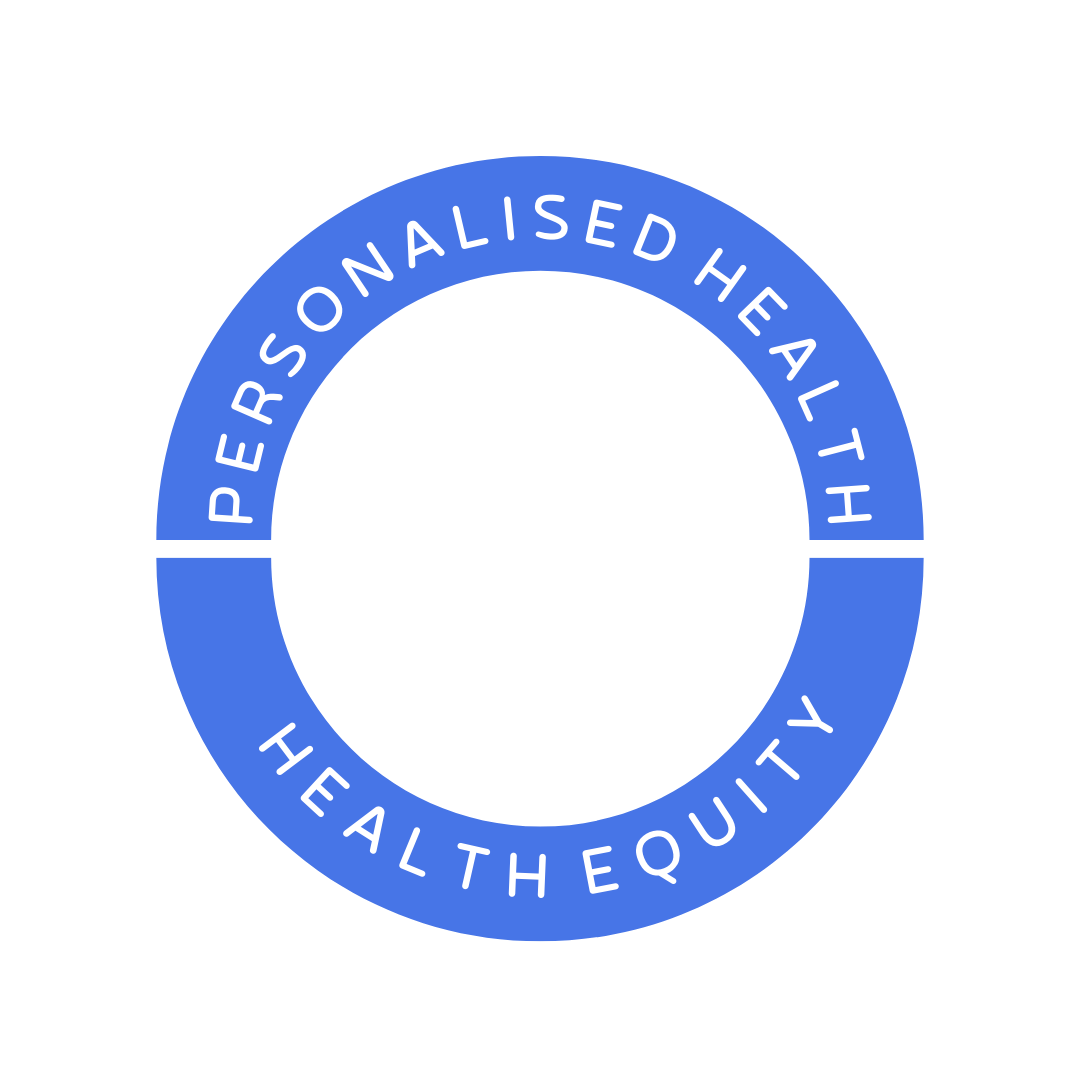Supporting our loved ones through grief: My lessons from the last 10 months
And why I'm starting my Substack community
July 2022
One July morning in 2022, I read the following words in a WhatsApp message from my Dad: “Perdimos a Abuela hace una hora.” Immediately my heart skipped a beat at this news that my Mom had passed away.
At least for me, her passing was not a complete surprise. My Mom’s advanced age and the way that COVID brought death into the homes of families all around the world prepared me for her passing to happen at some point. But it still hurt. And I knew it would be an emotional journey for everyone in my direct and extended family. Especially for my Dad, as they had just celebrated their 52nd anniversary.
Constant virtual & physical communication and a roller coaster of emotions replaced whatever routines I had expected to have during July and August. And although I would eventually find time for myself, my mind kept running in circles over what impact my mom’s death would have on my family.
In the end, the people I ended up spending the most time supporting through their grief were my wife, my daughter, and my father.
Lessons from dealing with Grief
I’m writing this post today because after 10 months, I’m finally in a place to openly talk about my Mom’s passing. To report that we’ve all evolved and accepted the change that is life today versus life from before July 2022. And to share what I’ve learned, in the hope that it might be helpful to at least a few people who have or will experience a loss in the family at some point in the future.
First, I helped myself by turning off the social media fire hose. I put my attention on the people in front of me who needed me most.
Second, I looked to my circle of support – especially my wife and daughter – to help me connect with the resilience I’ve learned to build up and tap into when I needed it most.
Third, I helped my Dad set his expectations for what his journey would be like, starting with two key phrases: “One step at a time” and “Understand that your emotions will override your logical self. Don’t expect that everything will rebound right away.”
Fourth, I sought out experts. The most impactful book that informed me on the latest in Bereavement Science – the science of grief - is by Mary-Frances O’Connor, PhD. The information in The Grieving Brain helped me immensely. I adjusted my vocabulary and conceptual understanding of grief so I could have a healthy dialogue with my Dad. With this knowledge, I could be informed on managing his expecations on his journey – and mine – including being realistic on what end-point we were working towards in accepting grief. The goal? To evolve and accept the reality of grief. Grief is not an illness. You can’t cure it. It is always a part of you. You simply have to learn to live with it.
Fifth, I helped guide my daughter, and let her experience her big emotions. And eventually, helped her understand what her role was in being part of the lives of people going through grief. The answer? Stay a kid. Play as much as she wants, as long as it brings joy to herself. This includes playing with my Dad, her Abuelo. But when her Abuelo had big emotions from grief, she knew to immediately find an adult - preferably me. For us adults, the lesson is that kids are not our medicine – we can’t and shouldn’t put that expectation on them. They are kids, and we should seek out emotionally mature adults to help us through the most emotionally challenge parts of our grieving process.
And last, I helped my Dad commit to a purpose for his future. This took time. I had to figure out what his baby steps looked like in his new journey as a widower. And if you’re like me where you haven’t spent meaningful time with your parents since leaving for University, this posed its own set of challenges.
Moving Forward
In the end, my Dad found his purpose. He rediscovered his strength. He rebuilt his emotional and physical resilience. And as a result, he is now on his own for the first time since he was 20 years old. He is older, has more grey hair, and wears thicker glasses. But he is happy again. And he can be there to support his sister in Mexico who is now going through her grieving process after losing her husband earlier this year.
The last 10 months have been a challenge for me, my wife, and my loved ones. There were other areas of support for my Dad that merit a separate conversation – such as dealing with parental finances. But in the end, this experience has helped me grow as a person. Thanks to my supportive wife and a great set of in-laws, I’ve learned a lot about myself. My future purpose hasn’t changed drastically, but my personal objectives are crystal clear.
Quiet, but quite busy, and ready to share online again
And I’m now stepping back into the world of social media again and starting a new journey in joining the Substack community and sharing my perspective on Personalised Health and Health Equity, including how I aim to catalyse global change for others through business building, writing, podcasting, and public talks.
For those of you discovering me for the first time, look on LinkedIn and my website to learn more about my focus on Personalised Health and Health Equity. Look for new posts and notes on my new podcast episodes, videos, and public talks on a diverse set of topics including:
Sleep Science and Lucid Dreaming
Fiction writing both my current book and upcoming novels
A new book on Health Equity and how to bring greater health impact through ESG and the private sector
Creating greater diversity in clinical trials in Asia Pacific
Ending Parkinson’s disease
Digital Health Today and Asia Pacific podcast episodes
Business building activities including ecosystem building
Venture development for startups and CEO Coaching
And working with great people
I look forward to engaging with this community.
Onwards and upwards!
Antonio (Tony) Estrella





Thanks for sharing your journey of grief and sorry to hear about the loss of your mom … I have read “The Grieving Brain” and found it very helpful in understanding my own grief process. It is wonderful that you were able to be there for your family in helpful and meaningful ways, especially through this really difficult time.
I'm glad things worked out that my Dad and I could process our grief together. One thing I learned is that grief is with us forever. The intensity of it may abate, but there will always be memories that surface which bring up new reminders.
A second book which I also found helpful was "Resilient Grieving", by Lucy Hone.